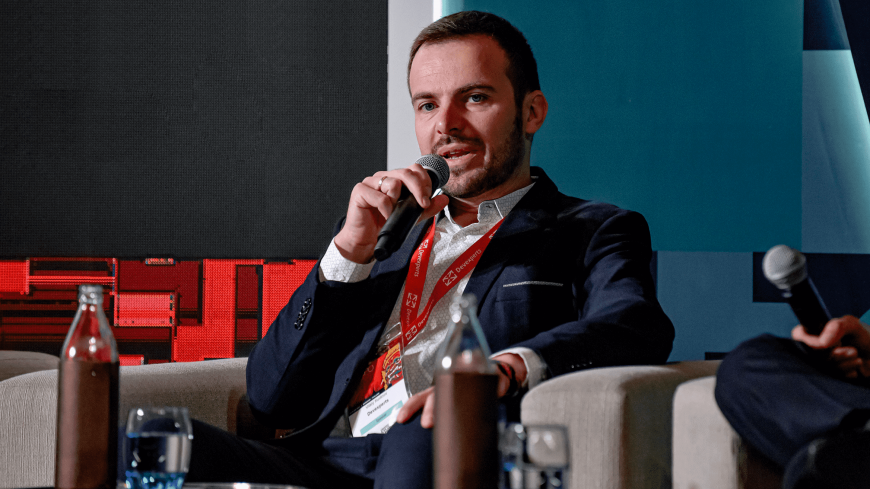Technology of Tomorrow: Key Developments in Trading Tech
This year, the iFX Expo Asia in Bangkok featured many fascinating technology panels. Our SVP of Sales and Business Development Vitaly Kudinov participated in the “Key Developments in Trading Tech” panel discussion and shared his thoughts on the risk management for different types of traders and the benefits brokers can expect from offering digital assets.

How can you protect brokers of your technology, and how can you protect the LPs that you’re connecting to?
When talking about different trading patterns, we have different types of traders. Most of the time, when talking about traders on the platform, we assume it’s an active trader who opens up to 100 trades a day—algorithmically or manually—and closes most of them at the end of the day. This is pattern number 1.
But today, we’re facing more people with money that they want to put in an investment account rather than their bank account. That’s pattern number 2, and it’s a different approach in all aspects, including risk management, because people don’t want to exit their trades at the end of the day. They want to invest in stocks, like Apple or Meta, and close in six months or later. Still, FX and CFD brokers can bring a lot of value to these traders.
Pattern number 3 is social and copy trading. Today, we have very good solutions, showing the performance of Master accounts. So, people see a Master account bringing at least 20% of revenue per year and subscribe to it. This, though, can cause many problems. For example, when the master account issues the order, thousands of sub-accounts issue the same order simultaneously. This causes a huge system load. So, we now face issues affecting execution speed and actual price. The first half of the accounts may profit, and the other half may not.
The last pattern is algo trading. More and more platforms allow us to do algo trading and connect to them using B2C API. It’s giving a single user the ability to trade using a programming language. This case exhibits a different pattern from the others because these traders can issue thousands of orders per day.
To protect LPs, we need to split the overflow from these four categories into different pools and take care of them differently. For instance, for investors, brokers can safely do B-Book. For day traders, it depends on their performance. Brokers must store their history and analyze it using an AI or business intelligence system. That way, they can understand who trades well and needs to be offset and who trades poorly and should be B-Booked.
Algo traders definitely should be hedged, and you need to have a very fast system for risk management. And finally, for social traders, it’s not scalable. You can’t build a system that will issue millions of orders at the same price level. They have to be bulk traded to some extent. I think in five years, the systems will be able to support this in a better way.

How is your technology helping brokers to add digital assets?
Offering digital assets creates many challenges, but brokers can expect several benefits when entering this market.
First, Ethereum is switching to a proof-of-stake, which means that staking becomes a new trading or investment asset. Five years from now, more brokers will offer participation in staking to their clients, bringing their ETH or some other proof-of-stake cryptocurrency or blockchain into investment. It’s like fixed income but from the crypto world. We also have a couple of established crypto exchanges as our customers at Devexperts. We also noticed they’ve revised the business model in a sense by not being market makers directly.
Instead, they’re putting a matching engine behind the platform and letting clients or traders trade against each other, making profits and commissions. This is how you can manage the risk: you can just let people trade against each other. Yes, it changes the business model for the broker, but it’s a win-win situation. Traders are happy with liquidity available in this exchange, and you, as a broker, are happy with the risk management.
Finally, the digital asset market is not yet well established, and stocks and bonds will be digitalized five years from now. They’ll be traded and hosted on blockchain, and brokers should start thinking about it today.
If you’re interested to hear more from Vitaly Kudinov and other representatives of ours, Devexperts will be joining the Finance Magnates London Summit (FMLS) this November and will be participating in “The Cutting Edge: Advances in Trading Technology” panel discussion.